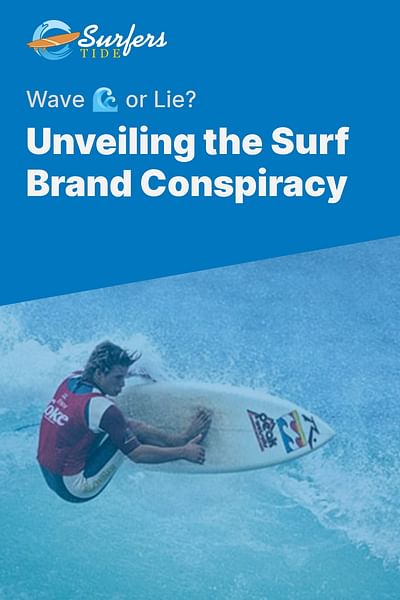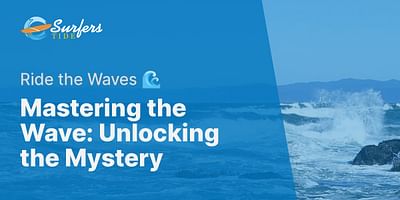Kai Summers is a professional surfer and world traveler with over 15 years of experience riding the waves. Born and raised in Hawaii, Kai has dedicated his life to exploring the best surf spots around the globe and sharing his knowledge with fellow enthusiasts.
Hey there, fellow wave rider! You've asked a really interesting question about the surf industry. Let's dive in and explore whether surf brands have a secret agreement to limit production.
Now, I have to say, the idea of a secret agreement among surf brands to limit production is quite intriguing. However, as someone who has been deeply involved in the surfing world for many years, I can confidently tell you that there is no concrete evidence to support such a claim.
Surf brands, like any other industry, are driven by market demand and profitability. They aim to produce and sell products that resonate with surfers and meet their needs. While it's true that some surf brands may choose to produce limited quantities of certain items, it's usually for strategic reasons rather than a secret agreement.
One reason for limited production is to create a sense of exclusivity and desirability. By releasing a limited number of products, surf brands can generate hype and create a buzz among surfers. This marketing strategy is commonly used in various industries, not just surfing. It's all about creating a sense of urgency and making surfers feel like they're part of something special.
Another reason for limited production is to maintain quality control. Some surf brands prioritize craftsmanship and attention to detail. By producing in smaller quantities, they can ensure that each product meets their high standards. This approach allows them to focus on quality rather than mass production.
It's also worth mentioning that the surf industry is highly competitive. There are numerous surf brands out there, each vying for a piece of the market. With so many players in the game, it's unlikely that they would all agree to limit production. Competition drives innovation and diversity in the industry, which benefits surfers like you and me.
Now, let's talk about some of the best surf clothing brands out there. While Volcom is undoubtedly a popular and well-respected brand, there are plenty of other cool surf brands worth checking out. Some of my personal favorites include Quiksilver, Billabong, Rip Curl, Hurley, and O'Neill. These brands have a long history in the surfing world and offer a wide range of high-quality products to suit every surfer's style and needs.
| Brand | Founded | Known For | Popular Product |
|---|---|---|---|
| Volcom | 1991 | Youth-oriented, creative designs | Volcom Stoneys Boardshorts 🏄 |
| Quiksilver | 1969 | High-performance surf wear | Quiksilver Highline Pro Wetsuit 🌊 |
| Billabong | 1973 | Sustainable surf gear | Billabong Revolution Wetsuit 🌍 |
| Rip Curl | 1969 | Innovative surf technology | Rip Curl Flashbomb Wetsuit ⚡ |
| Hurley | 1999 | Comfortable, functional surf wear | Hurley Phantom Boardshorts 👻 |
| O'Neill | 1952 | Pioneering wetsuit technology | O'Neill Hyperfreak Wetsuit 🚀 |
| Brand | Founded | Strategy | Quality Control |
|---|---|---|---|
| Quiksilver | 1969 | Exclusivity through limited editions | Strict quality control for durability 🏄 |
| Billabong | 1973 | Focus on market demand and trends | High-quality materials for comfort and performance 🌊 |
| Rip Curl | 1969 | Innovation and technology-driven | Rigorous testing for performance and durability 🤙 |
| O'Neill | 1952 | Pioneering wetsuit technology | High standards for warmth and flexibility 🌞 |
| Roxy | 1990 | Catering to female surfers | Quality control for fit and style 👙 |
In conclusion, while the idea of a secret agreement among surf brands to limit production may sound intriguing, there is no concrete evidence to support it. Surf brands operate like any other industry, driven by market demand and profitability. Limited production is often a strategic choice to create exclusivity and maintain quality control. So, keep riding those waves and enjoy exploring the diverse world of surf brands!















